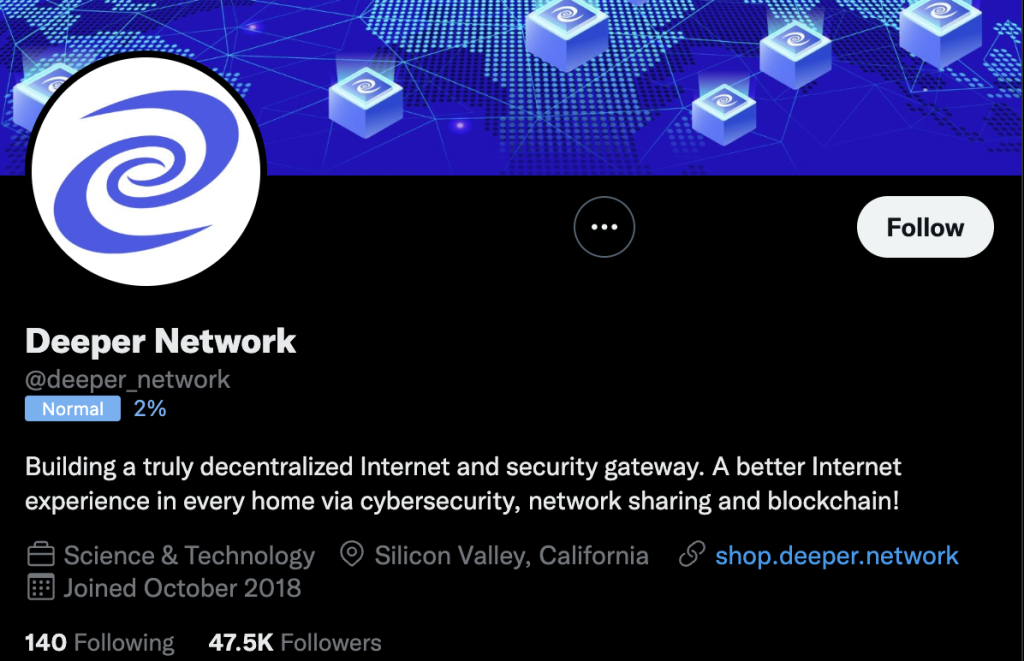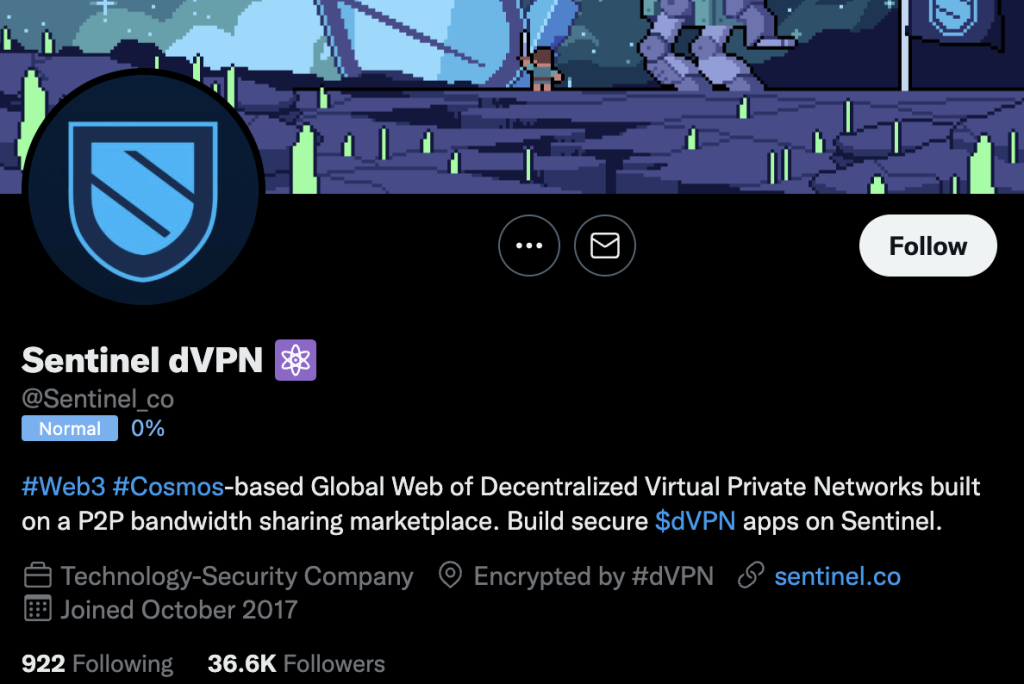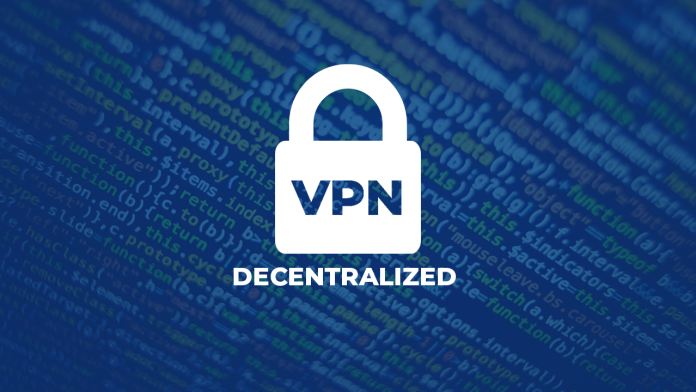tl;dr Summary: Decentralized VPNs bring the concept of trustlessness and decentralization to the world of existing VPN solutions and promise better privacy and security to its users.
Virtual Private Networks or VPNs are a way users can obtain online privacy and anonymity by encasing their internet traffic in a private network.
Typically, when you access a website, a link is established between your computer, the server of your internet service provider, and the server that houses the website. When using a VPN, this link gets redirected through a secure tunnel which diverts your traffic through different areas, effectively hiding your location and making it difficult to trace your computer.
Even while using a public network (cafe or a hotspot), a VPN’s encryption technology prohibits anyone who might be listening in on your activity from reading your data.
Although VPNs hide your online behavior from intermediaries like your internet service provider, the VPN operator itself can see everything. Most top-rated VPN providers have no-log policies that guarantee otherwise but you’re ultimately taking them at their word.
Also, even with multiple locations around the world through which they route traffic, existing VPNs are not sufficiently decentralized.
What Is a Decentralized VPN?
A decentralized VPN (dVPN) replaces centralized data centers used by traditional VPN service providers with a peer-to-peer network of nodes. A node could be a server, a person’s phone, laptop, or even a desktop computer running inactively in an office.
The ultimate goal is to build a “trustless network” where users connect to specific distributed nodes using encrypted protocols.
Because of the distributed nature of dVPN, there is zero chance that user data will ever be collected or logged in a centralized fashion. It makes them more trustworthy (or trustless) than their centralized counterparts. In addition, like with most P2P networks, the network grows more secure, resilient, and robust as the number of nodes increases.
Most dVPN companies offer two plans: those that let you pay for access like a regular VPN and those that let you earn credit by allowing others to route through your devices.
On the surface, this sounds a little dubious, as you’re allowing total strangers access to your devices. But this is not true. Users can only use your machine or phone to route their internet traffic through, and at no point do they have access to your device. In return for sharing your bandwidth, you get compensated with the native token of the network, and this is the incentive structure built into the model.
dVPN vs. Tor vs. VPN
A decentralized VPN is not a brand-new concept. The US Navy first created the Tor project to safeguard internal intelligence communications. It was made available to the general public in 2002.
The best way to understand Tor, which stands for “The Onion Router,” is to look at an onion. An almost-onion-like layer of security is applied as data is routed through a volunteer network of relay servers.
- The first layer of security tells the first server, or node, what to do.
- Once this data packet is transmitted, the next layer of the onion gets peeled back to disclose the instructions for the following node.
- And so on until it finally arrives at its destination.
No single node has access to all the information about who is sending what data because each node functions on a “need to know” basis.
Tor provides the most secure and private network, but it has limitations.
- Internet speeds are incredibly slow due to all these routing layers.
- The extra privacy and security measures apply only to the traffic originating from a Tor browser.
- The nodes that make up the Tor network are volunteer nodes which prevent it from mainstream adoption and growth.
- Since traffic in a Tor network hops from one node to another, it is easy to harvest these IP addresses and block them.
dVPNs offer a much more compelling solution to privacy than VPNs and Tor.
- dVPNs are much faster than Tor but not traditional VPNs. Centralized data center servers have a better network backbone and so can provide much better speeds.
- dVPNs are much harder to block as the traffic goes through household computers and mobile phones rather than an easily identifiable data center.
- Unlike traditional VPNs, it is impossible to keep any centralized logs for user traffic in a dVPN. Logs are only available on individual user devices.
- As more nodes connect, the more secure the overall dVPN becomes, unlike Tor, which is a volunteer network.
But this begs the question. How can I, as a user, ensure that my network bandwidth does not get used for any criminal activity?
dVPNs address this issue in two ways. First, as a user, I can choose between accepting traffic only from known sources like Netflix, YouTube, and others, but this will limit my earning potential as a node. And second, since my node acts only as a relay, it does not take any liability. Also, theoretically, traffic cannot be traced back to my node as there are no centralized logs.
There are a couple of projects in this space. (Note: these are not recommendations to use these networks, nor are we saying they are absolutely safe. Always do your own research.)

1) Deeper Network: Deeper Network is a blockchain-based, shared bandwidth economy that comes with its own hardware unit. It claims to have over 30,000 working nodes (hardware units) worldwide. The project runs on Polkadot with a native token DPR. It is backed by several VCs, including Consensus Lab, Spark Digital Capital, and BMW Capital.
2) Orchid: Orchid is an open-source network protocol that uses the excess bandwidth from a node’s Internet to provide users unrestricted access. Nodes on Orchid run the Orchid server, which accepts connection requests and provides VPN service in exchange for immediate payment. These providers stake OXT tokens in an Ethereum smart contract to advertise their services to clients. The clients see a random list of providers based on their total stake.
3) Mysterium Network: Like other projects, Mysterium Network is also a network of nodes selling their unused bandwidth at the Mysterium marketplace to users. In 2021, Mysterium Network became the Top Ten Ethereum app by monthly active users. It has over 100,000 monthly active users connected to 3800+ nodes worldwide and has MYST as its native token.

4) Sentinel: Unlike other projects, Sentinel is not a single dVPN application but a network of independent dVPN applications built on Sentinel’s dVPN protocol framework running on Cosmos. Their goal is to bring dVPN technology to the mainstream consumer. So Sentinel has focused not on creating one dApp but a set of tools and rails to help create many such dVPN dApps.
5) Tachyon: Tachyon VPN uses the Tachyon Node network as its infrastructure and service provider. This Tachyon Network is a network consisting of thousands of decentralized node providers using the Tachyon Protocol. At the moment, the network has over a thousand nodes worldwide.
dVPNs are yet another example of how blockchain technology can address the issues of trust and centralization in traditional use cases. The only minor drawback is the lack of speed compared to conventional data center-based VPN solutions. The speed may not be a big issue for individual users. Still, it will be interesting to see if organizations move to dVPNs.







Is there a dVPN that runs on the polygon network?
I’m not sure but a good resource to look for dapps is: https://dappradar.com/rankings/protocol/polygon
The dapps aren’t necessarily safe just because they’re on this list, so always be careful and DYOR before connecting to a site.